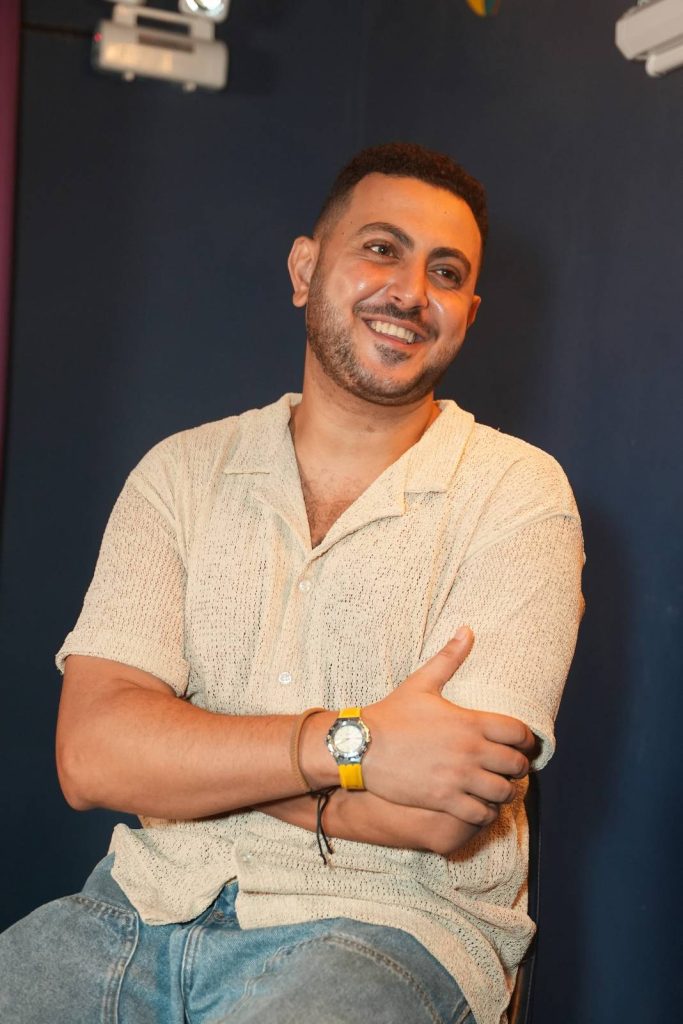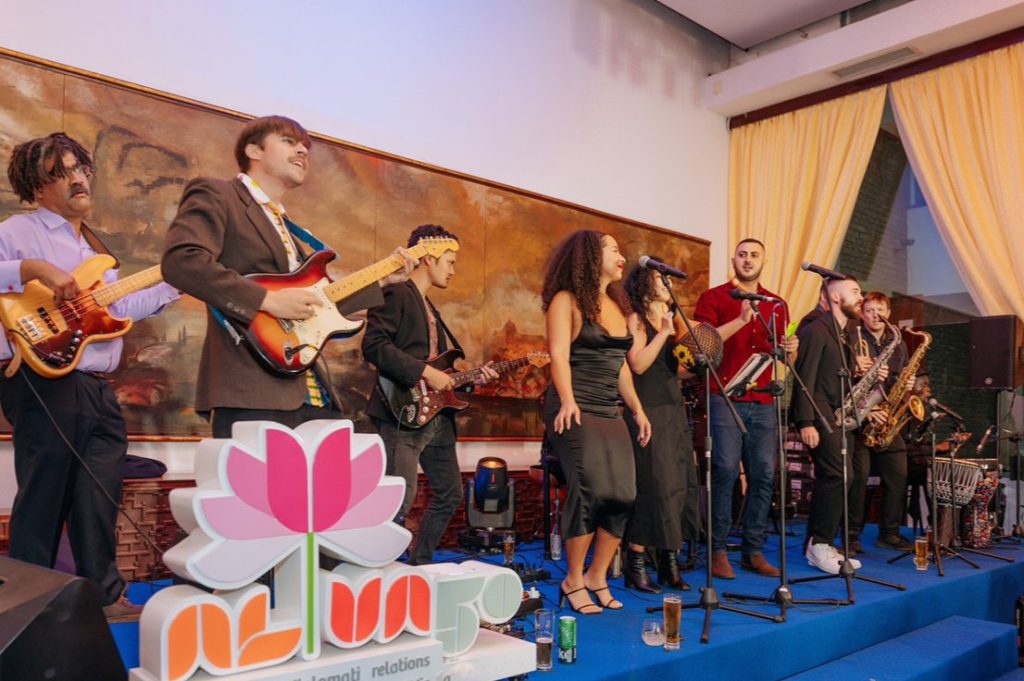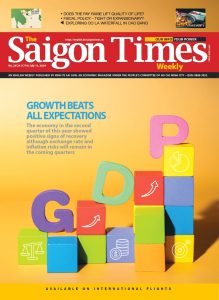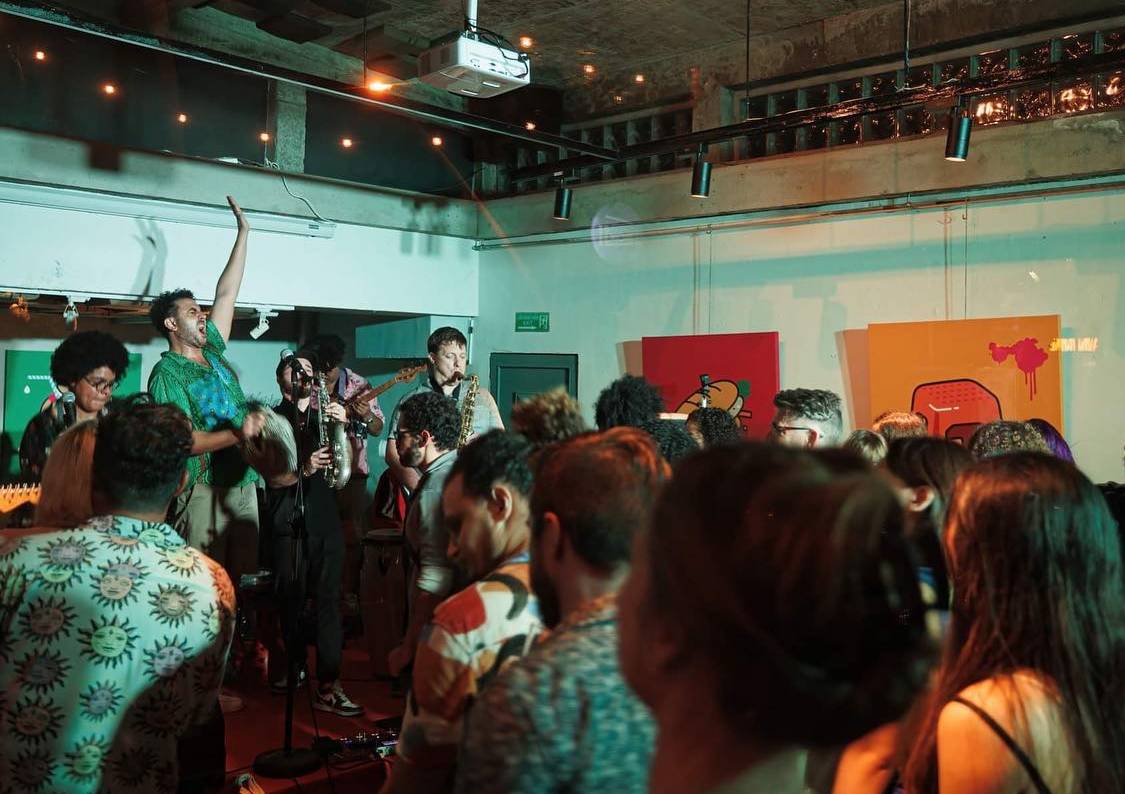It is often said that music connects people, and this could not be truer for Omar El Gendy, an expatriate singer who has called Vietnam home for the past five years. Each morning, he starts his day with a cup of coffee, accompanied by the slow-tempo melodies of Vietnamese Bolero, a routine that has become second nature to him. In an interview with The Saigon Times, Gendy shares his journey of discovering opportunities to raise his voice in this new land, Vietnam.
The Saigon Times: What are the reasons that made you decide to stay in Vietnam?
Omar El Gendy: There are two main reasons that made me decide to stay in this country. First, I feel very comfortable living among Vietnamese people. They are very generous and accepting, which was a big motivation for me to stay in the country. Second, I can see the potential of Vietnam. It is developing really fast and offers a wide range of opportunities in different fields. It seemed like a win-win situation to me because the people are nice, there are career and professional opportunities, and the cost of living is reasonable. You do not really worry about buying food, finding a nice place to stay, or meeting your needs. These reasons made me realize that Vietnam is the right place for me to stay at the moment.

What have you needed to do to adjust to the culture here in Vietnam?
There were several things I had to adjust to. For example, the weather in Saigon was a big adjustment because it’s always hot, and then during the rainy season, it’s both hot and rainy. It was the first time I experienced tropical weather, so it was a bit of a shock for me. Another major adjustment was driving. The number of motorcycles on the roads, all going in different directions, was something I had to get used to.
What have you found the most interesting in this regard?
One of the funny things I had to adjust to was nap time in Vietnam, which is between 11 a.m. and 1 p.m. During this time, whether you are in an office, a coffee shop, or a restaurant, everyone takes a nap. When it hits a certain time, if there is a desk, a bed, or a hammock available, people just go to sleep. This was surprising to me at first. Now, after five years, I have gotten used to it. If I am working or doing anything around that time, I also take a small nap. It is really nice because it helps you take a break, recharge, and start fresh. It feels like another day almost, giving you more energy for the rest of the day.
What do you think about the expat community in Saigon?
The expat community here is very versatile and cosmopolitan, with people from almost everywhere. Everyone has almost equal opportunities, though some might have better chances than others. However, I do not really notice a significant difference between nationalities. It all depends on the work you do, how you serve it, and your approach. I really like the expat scene here because it is diverse and inclusive. However, a disadvantage is that the expat scene in Vietnam, especially in Saigon, lacks diversity in professional fields. Since teaching jobs are so prevalent, there are fewer professionals in other areas. This results in a lack of versatility in the professional landscape for expats here, as it is predominantly focused on teaching.
Everyone has a childhood dream of becoming a rockstar. Now that you are a singer, what made you chase your dream?
I started studying dance at a young age because my family has an artistic background, with many of them being professional dancers. They taught me the art of dancing and enrolled me in dance school, where I studied for nine years. After finishing my studies, I began touring both domestically and internationally as a professional dancer. However, music was always my favorite aspect of dance. If I didn’t like the music piece, I did not enjoy performing the dance. This realization led me to explore music more deeply. I started learning percussion, specifically the traditional drum from my city Alexandria, known as the tabla or darbuka. As I improved, I joined various music bands and projects.
During my musical journey, I discovered an artist named Fela Kuti from Nigeria, the founder of Afrobeat music. His music resonated deeply with me, and I knew I wanted to pursue it. Initially, I played percussion, but when I decided to form an Afrobeat band, we did not have a singer. So, I stepped up to sing for the band while continuing to play percussion. Now, I get to do both, which is the best of both worlds for me.
Could you share with us your first experience performing in Vietnam?
My first performance in Vietnam was at a place called Soma Saigon. It was also the first performance with my band, so I was really worried and anxious at the beginning. However, I play with wonderful musicians in my band Osoko, and their support and positive energy really motivated me. This helped me focus more on enjoying the experience rather than worrying about the audience. The energy and support from my bandmates gave me a sense of responsibility. I knew I couldn’t mess this up because they believed in me and had put in a lot of work. I did not want to let them or the audience down. We were initially concerned that people might not show up, but a lot of people came, and the concert turned out to be very successful. Sharing the stage with such talented musicians and receiving great energy from the audience and support from the venue was an amazing feeling. Performing is a unique experience; once you go on stage, you enter a different phase, full of energy, and you get to spread that energy to everyone watching. It is a beautiful feeling.

What are the challenges of becoming an expat singer in Vietnam?
One challenge is being categorized as a Western singer, which can limit expectations to certain genres. However, we have managed to introduce African music successfully, showing the flexibility of the Vietnamese audience. Challenges often bring opportunities. For us, it meant creating our own opportunities by organizing concerts and showcasing our music.
As the lead vocal of the band, do you feel the spotlight is always on you?
In our band, every member is special and has their moment to shine. We are like eye candy, each showcasing our talents. We are all equal, so the audience feels the energy from all of us, not just one person. For example, when a guitarist plays a solo, the whole band supports and acknowledges his moment. Recently, we had significant success playing at the Independence Palace for an event hosted by the Dutch Embassy. That is a success that we are really proud of.
Are there any Vietnamese music tracks that you keep on repeat?
Yes, I really enjoy bolero music. It’s peaceful and perfect for starting my mornings with a cup of coffee on the balcony or winding down after a long day. Vietnamese rap is another genre I like. It’s cool and rapidly evolving with its own unique identity. I appreciate how the Vietnamese music scene embraces new genres while maintaining its cultural identity, creating a beautiful fusion.
You also opened a cocktail bar here in Saigon, right? Please share with us how you started it?
When I started, I was on my own, but I had three of the closest people to me—Mariano, Elda, and Rou—helping me from the beginning. It used to be a very small venue, and they were always supporting and helping me in various ways. When we moved from the small bar to a bigger place, I suggested to them, “Hey guys, why do not you join me in running Bardo, since you are already helping me?” They were doing everything with me, soit made sense for them to be part of the business too. Now, the three of us run the place together, and it is really good because each of us has a different background. We combine our work and ideas, functioning well as a team. Someone might come up with an idea, and then another person suggests a way to improve it, making it better. People often say not to do business with your friends, but my experience has been really positive so far.

What are your future plans in Vietnam?
My plan is to expand Bardo, play more music with Osoko, produce more music, and travel within Southeast Asia to share our music. I also aim to improve my Vietnamese language skills. For anyone planning to come to Vietnam to pursue a music career, remember to have a plan, believe in yourself, invest in your music gear, and keep faith in yourself. Remember, music is meant to be shared, so share it, let it flow, and success will follow.
Reported by The Ky









